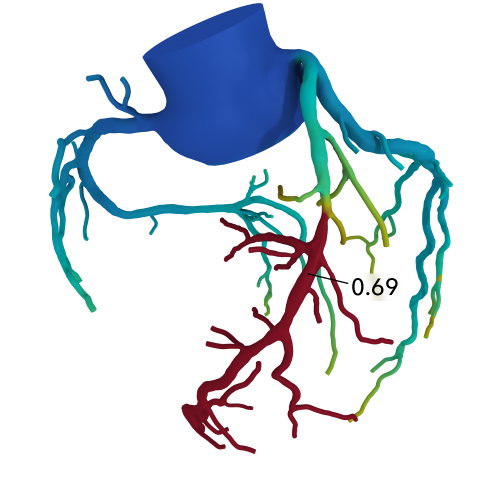A test for coronary artery disease that uses artificial intelligence to build an individualized map of each patient’s cardiovascular anatomy and function could soon be as commonplace as an ECG or cardiac catheterization to diagnose heart disease.
At least, that’s what HeartFlow, the company behind the AI diagnostic, is aiming for with its plan to go public through a reverse merger with Longview Acquisition Corp. II.
Through the deal, HeartFlow will merge with Longview, a special purpose acquisition company, or SPAC, that made its own public debut earlier this year. Once the merger is complete, the resulting public company will operate under HeartFlow’s banner, with the New York Stock Exchange ticker “HFLO.”
At that point, the combined company is expected to have a fully distributed equity value of around $2.8 billion, combining the merger’s pro forma enterprise value of $2.4 billion with the approximately $400 million in cash HeartFlow will end up with after the transaction closes.
In total, HeartFlow will rack up an estimated $709 million, split between the gross proceeds of Longview’s trust holdings and a repurchase of up to $110 million in equity shares from HeartFlow’s existing backers and employees.
With that haul, HeartFlow will expand its reach to target a total addressable market valued at more than $50 billion, by introducing new products and boosting usage of its HeartFlow Analysis test by both new and existing healthcare system customers.
Longview II, meanwhile, is backed by Glenview Capital Management, which previously merged its elder Longview Acquisition Corp. with the portable ultrasound maker Butterfly Network in a $1.5 billion SPAC deal completed earlier this year.
The HeartFlow Analysis applies deep learning AI algorithms to standard coronary CT angiograms to build a personalized model of the heart of a patient exhibiting symptoms of coronary artery disease, the most common form of heart disease.
The model not only shows the physical vasculature of the heart and its connected arteries but also calculates the rate of blood flow throughout the arteries. That allows cardiologists to determine the severity of a coronary blockage without requiring an invasive cardiac catheterization, in which a catheter is inserted into the heart to assess any blood flow blockages.
Studies of the HeartFlow Analysis have proven it to calculate blood flow with at least 86% accuracy, putting it well above other non-invasive diagnostics for coronary artery disease. It received a de novo clearance from the FDA in 2014.
In its 11 years as a private company, HeartFlow racked up more than $500 million in venture capital. As of its 2018 series E funding round—which brought in $240 million from a group of investors led by Wellington Management and Baillie Gifford—the company had secured unicorn status with a valuation of $1.5 billion.

